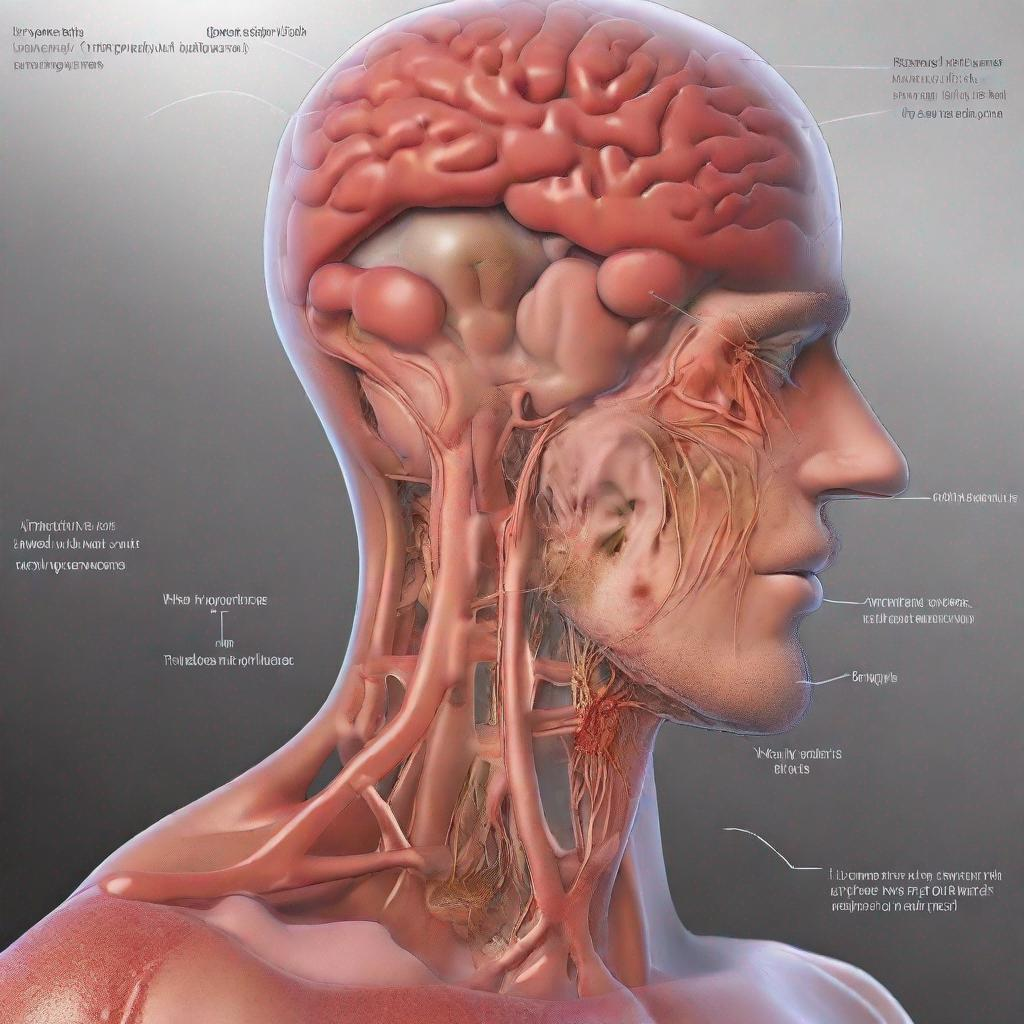## Meningitis: A Comprehensive Guide
### Introduction
Meningitis is a serious infection of the protective membranes (meninges) that surround the brain and spinal cord. It can be caused by bacteria, viruses, or fungi, and is characterized by a range of symptoms, including headache, fever, and stiffness in the neck.
### Symptoms
Common symptoms of meningitis include:
* Severe headache
* Stiff neck
* Fever
* Nausea and vomiting
* Confusion
* Seizures
* Sensitivity to light (photophobia)
* Rash
### Diagnosis
Meningitis is typically diagnosed through a thorough physical examination and a lumbar puncture (spinal tap). Blood cultures, computerized tomography (CT) scans, and magnetic resonance imaging (MRI) scans may also be performed to confirm the diagnosis and assess the severity of the infection.
### Prevention
Vaccines are available to prevent some types of meningitis, including:
* Meningococcal vaccine
* Pneumococcal vaccine
* Haemophilus influenzae type b (Hib) vaccine
### Treatment
Treatment for meningitis depends on the type of infection. Bacterial meningitis is treated with antibiotics, while viral meningitis is treated with antiviral medications. Fungal meningitis is treated with antifungal medications. Other treatments may include:
* Steroids to reduce inflammation
* Intravenous fluids to prevent dehydration
* Oxygen therapy to assist breathing
### Complications
Meningitis can lead to serious complications, including:
* Brain damage
* Hearing loss
* Vision loss
* Seizures
* Stroke
* Death
### Types of Meningitis
**1. Bacterial Meningitis**
Caused by bacteria, this is the most severe type of meningitis. It typically occurs in children and young adults, and can be life-threatening if not treated promptly.
**2. Viral Meningitis**
Caused by viruses, this is a more common and less severe type of meningitis. It usually affects older children and adults, and typically resolves on its own within a few days or weeks.
**3. Fungal Meningitis**
Caused by fungi, this is a rare type of meningitis that typically affects people with weakened immune systems. It can be difficult to treat and may lead to serious complications.
**4. Aseptic Meningitis**
Aseptic meningitis is not caused by bacteria, viruses, or fungi. Instead, it is often triggered by other infections, such as Lyme disease or tuberculosis.
### Prognosis
The prognosis for meningitis depends on the type of infection and the severity of the symptoms. With prompt diagnosis and treatment, most people recover from meningitis without lasting effects. However, some individuals may experience long-term complications, such as brain damage or hearing loss.
### Call to Action
If you suspect that you or someone you know may have meningitis, seek immediate medical attention. Early diagnosis and treatment can greatly improve the chances of a positive outcome.



